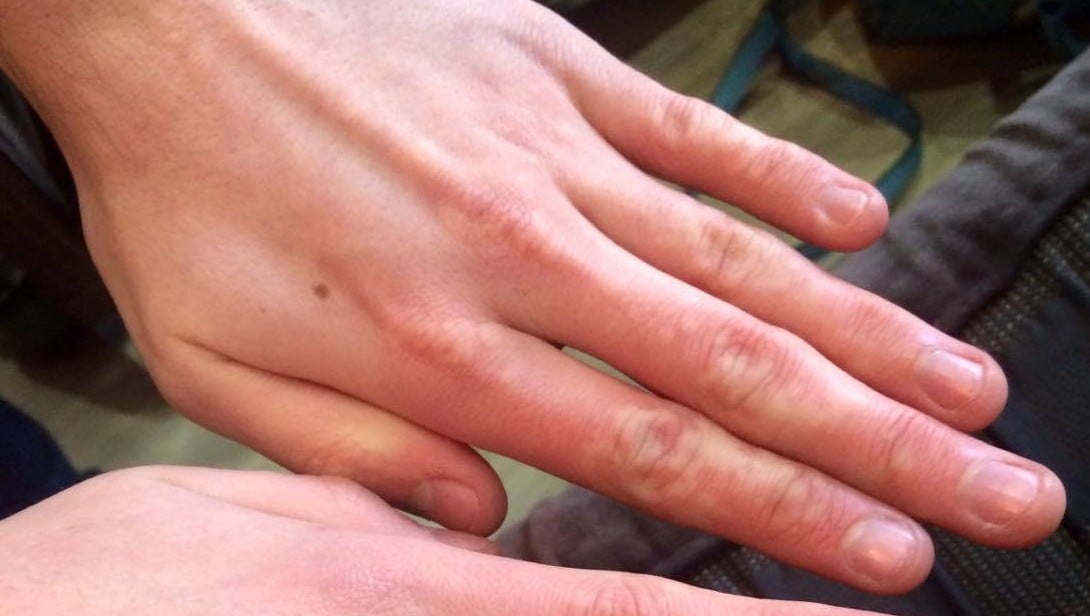Top 5 ways to keep your skin moisturized in winters.
Winter: the spooky season since we all fantasize about escaping our freezing city and travelling to a warmer climate. However, if you cannot afford a vacation location, ensuring you're prepared for harsh winter weather should be a priority. There are actions you can do to prepare your vehicle for winter weather, as well as modifications you may make to your home once winter has passed. However, are you protecting your body?
Winter cold is very harsh on our skin. Low humidity indicates that the air is dry and below freezing. And if you don't protect your skin from winter's difficult circumstances, you'll end up with rough, irritated skin by the time warm, sunny days arrive. Keep these ideas in mind to keep your skin looking and feeling youthful and revitalized.
Why does dry skin occur more frequently in the winter?

The stratum corneum layer of your skin is responsible for retaining moisture. This outer wall prevents water from entering and chemicals, pathogens, and allergies from exiting. Dr Waldman compares the stratum corneum to a protective brick wall: the skin cells (keratinocytes) serve as the bricks, which are kept together by a variety of proteins and lipids (including filaggrin) (such as ceramides). Proteins and lipids serve as the barrier's mortar. When the humidity level lowers in the winter, water more quickly departs this barrier via evaporation, resulting in dry skin.
What are some of the risk factors for developing dry skin?
Among the risk factors for dry skin are the following:
- Aged
- Specific health problems, for example, eczema or food allergies
- Hand washing, showering, bathing, and swimming regularly
- Experimentation with abrasive soaps and chemicals
Common Skin Issues During the Winter
Numerous skin problems might occur due to exposure to ordinary winter temperatures. The following are the most frequent:
● Xerosis (Dry Skin)

This is referred to as 'winter itch .' It is just dry skin caused by the winter season. This can show as skin flaking off, patches of skin turning red or pink, or sections of skin becoming so raw that they become uncomfortable.
● Lips Chapped

This is often manifested as flaky, cracking skin on the lips' surface due to extreme dryness.
● Cold Urticaria

This illness, which manifests within minutes of exposure to cold, causes red welts and hives to appear all over the body. Additionally, lightheadedness, neck enlargement, and a burning feeling on the skin's surface may occur. It is often more prevalent in adolescents and young adults.
● Eczema

While eczema is a chronic dry skin condition, cold weather is a frequent cause of flare-ups.
The Importance of Winter Skincare
Winter skincare becomes critical when temperatures decrease. Prolonged contact with cold air frequently leads to dry, flaky skin or might exacerbate existing conditions. Without extra moisturizers and enough protection from the outdoors, many skin conditions can become irritating or uncomfortable, impairing your look.
Winter Skin Care Tips
A winter skincare routine entails much more than simply using skincare products. How you care for your skin in the winter and how you prepare it for the cold have a lot to do with how your skin looks when the weather becomes frigid. Here are some additional recommendations for caring for your skin outside of your typical skincare routine.
Utilization of a Moisturizing Lotion
The most significant protection against dry winter skin is a moisturizer that is efficient at keeping the skin moisturized. Daily moisturizing prior to the winter chill will assist in establishing a robust and healthy moisture barrier. When shopping for a moisturizer, search for ceramides and glycerin. These ingredients aid in the lotion's barrier repair and help keep your skin healthy and moisturized.
Pro tip: more thickness is not always preferable. Thick lotions are often heavier and oily and may not usually provide additional moisturizing advantages. Rather than that, concentrate on selecting the most delicate moisturizer for your skin type and skincare routine. Elizabeth Arden Eight Hour Skin Protectant Nighttime Miracle Moisturizer from Look fantastic provides a high hydration and should be applied to damp skin immediately following a shower to help lock in the moisture your skin gained during the shower.
Daily use of sunscreen
With the shorter winter days and decreased sunshine, it's tempting to skip sunscreen in your daily routine - but resist. Even in the winter, damaging UV rays may wreak havoc on your skin's moisture barrier, which is critical for skin health and hydration.
Each morning, apply a layer of sunscreen over your Ambre Solaire Ultra-Hydrating Shea Butter Sun Protection Cream SPF30 from Look fantastic.
The American Academy of Dermatology recommends using sunscreen with an SPF of at least 30.
Increase Your Water Consumption
The most prevalent problem that happens during the winter is dehydration, which occurs because we do not experience thirst during this season, resulting in a decrease in the quantity of fluid in our bodies. As a result, our skin dehydrates and becomes malnourished. It is suggested to consume at least 2-3 litres of water every day, commencing with two glasses of water upon waking and another drink every two hours thereafter.
If you have difficulty drinking plain water, you can choose its substitutes. Consider lemon water, coconut water, or caffeine-free beverages. If it does not work, experiment with adding veggies or fruits to your water. You may flavour your water with strawberry, cucumber, mint leaves, or orange.
If your skin remains rough and dry, consult your dermatologist. Your doctor can assist you in determining the cause of your skin's dehydration and provide you with the necessary therapy to keep it healthy.
Select a cleanser with care
Numerous over-the-counter cleaners really include harsh chemicals that might be detrimental rather than beneficial. Alcohol and any additional scents are detrimental to dry, cracked skin since they take away natural oils. Cream-based cleansers, such as this Eve Lom Cleanser 7oz, can help retain hydration while removing debris and makeup from the day.
Moisturize often throughout the day
It's critical to moisturize your skin in the morning and before you sleep, beginning with your face. Use a moisturizing body cream from neck to toes (slip on socks to help the formula soak in). It'll work similarly to night cream for your face, soothing the skin and locking in moisture as you sleep. Consider Vaseline Intensive Care Advanced Repair Unscented Body Lotion from Look fantastic, a GH Beauty Lab test winner that boosted skin hydration by a near-record 60% in Lab evaluations.
Stack warm garments
Your mum was correct — wearing warm clothing is a necessity throughout the winter! Depending on the temperature, you should pull out the appropriate quantity of winter clothing, from gloves and scarfs to jackets and coats. Proper gear will not only protect your skin from the moisture-sucking dry winter air but will also help avoid those pesky cracks and cuts that we all suffer during the winter—additionally, warm clothing assists in preventing water loss from the skin.
Increase the Humidity
As is the case with a hot shower, a warm and pleasant dwelling provides a welcome respite from the bitter winter air. However, spending an extended period of time indoors with the heat turned up can be detrimental to your skin. Dry, heated air is synonymous with dry, rough skin.
Rather than that, set your thermostat to the lowest level that is suitable for you and use a humidifier to restore the moisture that your furnace removes from the air. The additional humidity surrounding you will help keep your skin moisturized by preventing it from losing water to the environment.
Consult a dermatologist if you believe your skin is suffering as a result of the cold winter weather or if you observe any worsening symptoms. According to the American Academy of Dermatology, dry skin can be a symptom of severe skin disorders such as eczema or dermatitis. A dermatologist can assist you in achieving your objective of smooth, healthy skin regardless of the weather. Fear of having bad skin is one thing you should never conceal from your doctor.






